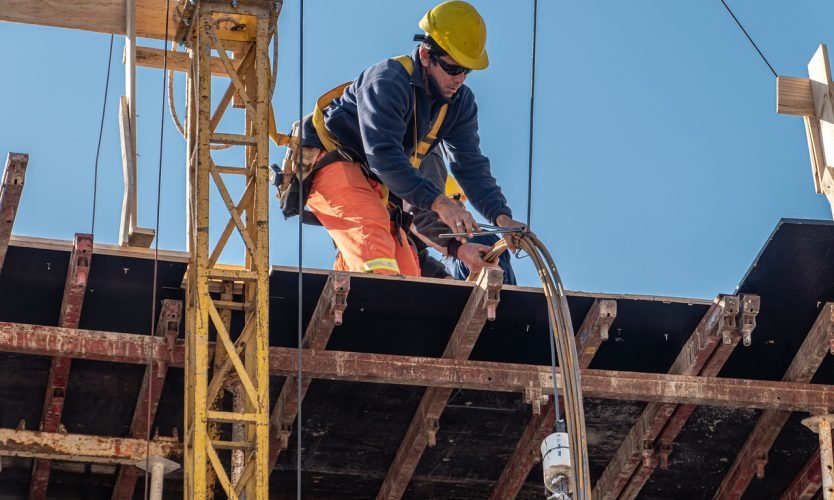What steps do commercial contractors take before starting a construction project?
Before any construction project begins, commercial contractors play a vital role in ensuring that every step is carefully planned, legally compliant, and strategically executed. Their job goes far beyond just building — it starts long before the first brick is laid. From initial consultation and budgeting to design coordination and obtaining permits, commercial contractors Toronto take several essential steps to make sure every project runs smoothly and successfully. These steps are critical in maintaining quality, staying within budget, and ensuring timely completion.
Let’s explore the major steps that commercial and home improvement contractors typically follow before starting a construction project.
1. Conducting an Initial Consultation and Site Visit
The first step for any commercial contractors Toronto firm is to meet with the client to discuss the project vision, scope, and goals. This initial consultation allows the contractor to understand the purpose of the project — whether it’s a retail space, office building, restaurant, or warehouse.
After the consultation, the contractor visits the site to assess the condition of the land, accessibility, and environmental factors. During this visit, they evaluate soil conditions, topography, and any potential challenges like drainage, zoning issues, or nearby structures. This step helps create a realistic foundation for the project and prevents unexpected complications later.
2. Reviewing Client Requirements and Objectives
Once the site inspection is complete, the contractor thoroughly reviews the client’s requirements. This includes understanding the business operations, design expectations, and future scalability needs. For instance, home improvement contractors focus on enhancing functionality and aesthetics for residential clients, while commercial contractors Toronto prioritize durability, compliance, and efficiency for business structures.
During this stage, contractors also define the project’s scope and outline clear objectives. This ensures that both the contractor and client are aligned before moving to the planning phase.
3. Preparing Feasibility Studies and Preliminary Designs
Before construction starts, feasibility studies help determine whether the project is viable. This involves analyzing financial, legal, and technical aspects. Commercial contractors often collaborate with architects and engineers to prepare conceptual designs, layout options, and estimated budgets.
Feasibility studies answer key questions such as:
- Is the proposed design practical for the location?
- Can the project be completed within the client’s budget?
- Are there environmental or zoning restrictions to address?
By identifying risks early, commercial contractors Toronto help clients make informed decisions and avoid costly revisions later.
4. Estimating Costs and Creating a Budget
Accurate budgeting is crucial for any construction project. Contractors create detailed cost estimates that include materials, labor, equipment, permits, and contingency allowances. This financial planning ensures that both parties have a clear understanding of expected expenses.
Home improvement contractors may prepare cost breakdowns for renovations, including flooring, electrical work, and finishing materials. On a larger scale, commercial contractors Toronto prepare comprehensive budgets that account for long-term maintenance and sustainability measures.
By setting realistic budgets, contractors help avoid financial strain during construction and ensure that funds are allocated efficiently.
5. Obtaining Permits and Ensuring Regulatory Compliance
Every construction project must comply with local building codes and safety regulations. Commercial contractors Toronto take responsibility for acquiring all necessary permits and approvals from municipal authorities before beginning work.
This includes:
- Building permits
- Zoning approvals
- Environmental assessments
- Fire and safety clearances
Ignoring these legal requirements can lead to severe delays or penalties. Experienced contractors ensure that all paperwork is completed accurately and on time, maintaining compliance throughout the project lifecycle.
6. Creating a Detailed Project Plan and Timeline
Once the design, budget, and permits are finalized, contractors prepare a comprehensive project plan. This plan outlines every phase of construction, including material procurement, subcontractor scheduling, and milestone deadlines.
Commercial contractors Toronto often use advanced project management tools to monitor progress and coordinate teams efficiently. They assign specific roles to supervisors, engineers, and site managers to maintain accountability.
For home improvement contractors, this phase ensures that renovations are completed within the agreed timeframe while minimizing disruptions to the homeowner’s routine.
7. Selecting and Coordinating Subcontractors
A successful project depends on skilled tradespeople. Before construction starts, the main contractor carefully selects subcontractors for specific tasks such as electrical, plumbing, HVAC, and carpentry.
Commercial contractors Toronto often maintain long-term relationships with reliable subcontractors who meet quality and safety standards. They also ensure that subcontractors are licensed, insured, and compliant with local labor laws.
This collaboration guarantees that each part of the project meets professional standards, contributing to overall structural integrity and visual appeal.
8. Procuring Quality Materials and Equipment
Material selection plays a major role in determining the durability and appearance of the final structure. Before starting, contractors finalize their suppliers and order high-quality materials that meet the project’s specifications.
Home improvement contractors may prioritize eco-friendly materials for sustainable renovations, while commercial contractors Toronto often focus on energy-efficient and industrial-grade materials suited for high-traffic areas.
By securing materials early, contractors prevent supply chain delays and ensure construction can start as scheduled.
9. Conducting Safety Planning and Risk Assessment
Safety is a top priority in construction. Contractors develop a detailed safety plan before work begins. This includes conducting risk assessments, identifying hazards, and establishing safety protocols.
Commercial contractors Toronto ensure that all workers are trained in safety procedures, emergency response, and equipment handling. They also implement measures like fencing, signage, and protective gear to maintain a secure job site.
Proper safety planning reduces the likelihood of accidents, ensuring compliance with occupational health and safety standards.
10. Final Review and Client Approval
Before breaking ground, contractors conduct a final review with the client. This step ensures that all plans, budgets, and schedules are approved. Contractors address any last-minute concerns and confirm that both parties are satisfied with the project’s direction.
This transparent communication builds trust and sets clear expectations, ensuring that the construction phase proceeds smoothly and efficiently.
Conclusion
The pre-construction phase is one of the most critical stages of any building project. From consultation to safety planning, commercial contractors Toronto and home improvement contractors follow a systematic process to guarantee success. By thoroughly preparing before starting work, they reduce risks, control costs, and deliver high-quality results that meet client expectations.













